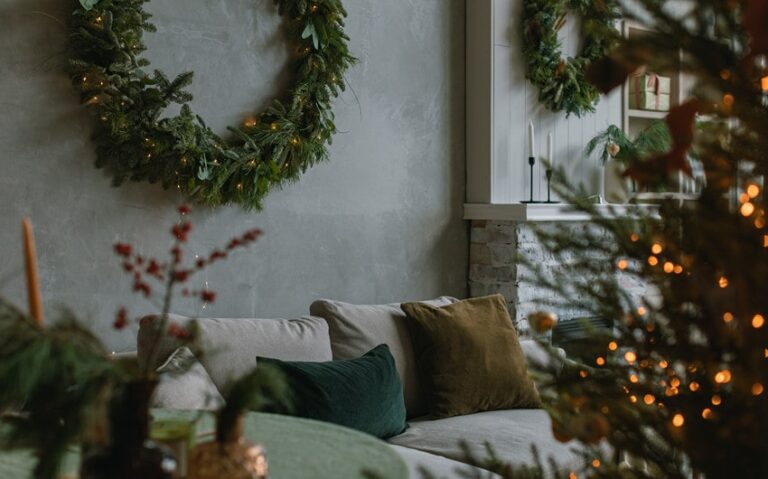8 Things to Consider When Buying Your Dream House
Buying your dream house is exciting, but it’s also a huge decision. Between emotions, logistics, and finances, it’s easy to miss important details in the process. A dream home should make you happy, but it should also make sense long-term. That means looking beyond the pretty kitchen or the big backyard and really thinking about what matters for your future.
Here are 8 things you’ll want to consider before signing those papers.
Understand Your Full Financial Picture
Before you start house hunting, it’s important to get a clear idea of what you can afford. That doesn’t just mean the price of the home; it includes the down payment, closing costs, insurance, property taxes, and long-term upkeep.
One of the biggest financial factors in buying a home is your loan. Even if a house is within your budget on paper, the actual cost over time depends heavily on your mortgage rates. Lower rates can save you tens of thousands of dollars over the life of your loan, while higher rates may make a once-affordable home suddenly out of reach. That’s why it’s smart to shop around for lenders and get pre-approved before you start making offers. A rate that’s just one per cent lower could mean the difference between comfortably managing your monthly payments or struggling to keep up.
Be Honest About Your Must-Haves vs. Nice-to-Haves
We all have a list of things we want in a dream home, but not everything is essential. Think about what features you really need for your daily life—like the number of bedrooms, proximity to work or school, or having a yard for your dog. Then be clear on which things you could live without if necessary, like a walk-in closet or a finished basement.
Being realistic here helps you stay focused when the emotions kick in. If you fall in love with a house that’s beautiful but missing something you need, you may end up with regrets. On the flip side, a house that checks your must-haves, even if it’s not picture-perfect, can end up being the better choice.
Think About the Neighbourhood, Not Just the House
It’s easy to get caught up in the home itself, but the neighbourhood matters just as much. Look beyond the front door and pay attention to the area. What’s the traffic like? Are the nearby schools any good? Is it quiet at night? Do people take care of their properties?
Visit at different times of day. A street that seems peaceful at noon might be a different story at 7 PM. If you have kids (or plan to), you’ll want to check out local parks, community safety, and how long it takes to get to school. Remember, you can change things inside the house, but you can’t change the neighborhood.
Consider the Long-Term Potential
Buying a home isn’t just about today—it’s about the years ahead. Think about how your life might change in the next five to ten years. Will you need an extra bedroom for a child or a parent moving in? Do you want space to work from home permanently? Will stairs be a problem down the line?
Try to buy with both the present and future in mind. A home that fits your needs now but won’t in a few years could become more of a burden than a blessing.
Don’t Skip the Inspection
Even if a house looks perfect, you should always get a professional home inspection. There could be problems lurking under the surface—plumbing issues, a bad roof, foundation cracks—that aren’t visible during a walk-through.
An inspection can give you peace of mind or, at the very least, help you make an informed decision. If there are issues, you might be able to negotiate repairs or a lower price. If they’re too serious, it’s better to walk away before you’re stuck with a money pit.
Look at the Total Monthly Costs, Not Just the Mortgage
Your mortgage isn’t the only monthly cost to plan for. You’ll also have to budget for utilities, homeowner’s insurance, taxes, and possibly HOA fees. Some of these can vary a lot depending on the area or the type of home you’re buying.
Get a full picture of the monthly financial commitment before making an offer. That way, you’ll know if the home fits your lifestyle or if it’s going to stretch your budget too thin.
Pay Attention to Resale Value
It might seem strange to think about selling when you’re just buying, but it’s smart to consider a home’s resale potential. Even if you plan to stay forever, life happens. Job changes, family needs, or unexpected opportunities might mean you need to sell sooner than planned.
Homes in good school districts, with functional layouts and in well-kept neighborhoods, tend to hold their value better. Odd floor plans, bad locations, or homes that are too personalized may be harder to sell later.
Trust Your Gut—But Check It Against the Facts
Emotions play a big role in home buying. It’s normal to fall in love with a house. But don’t let feelings push you into ignoring red flags. If something feels off, slow down. Ask more questions. Compare the home to others in the area. Check how long it’s been on the market and why.
Likewise, if you’re hesitating on a place that meets all your needs because it doesn’t “wow” you emotionally, try to look past surface things that can be changed with time and updates. A well-priced, solid home that fits your life is often a better choice than a flashier one that stretches your budget or has hidden problems.
Buying your dream house is a big milestone, and it should feel good. But it also takes clear thinking, careful planning, and a willingness to ask hard questions. The more prepared you are going in, the fewer surprises you’ll face after moving in.
Take your time, talk to professionals you trust, and be honest with yourself about what really matters. A dream house is more than a wishlist, it’s a place that fits your life, supports your goals, and gives you peace of mind when you walk through the door.
Let the dream be exciting, but let the decisions be grounded. That’s the real key to finding the right home.







